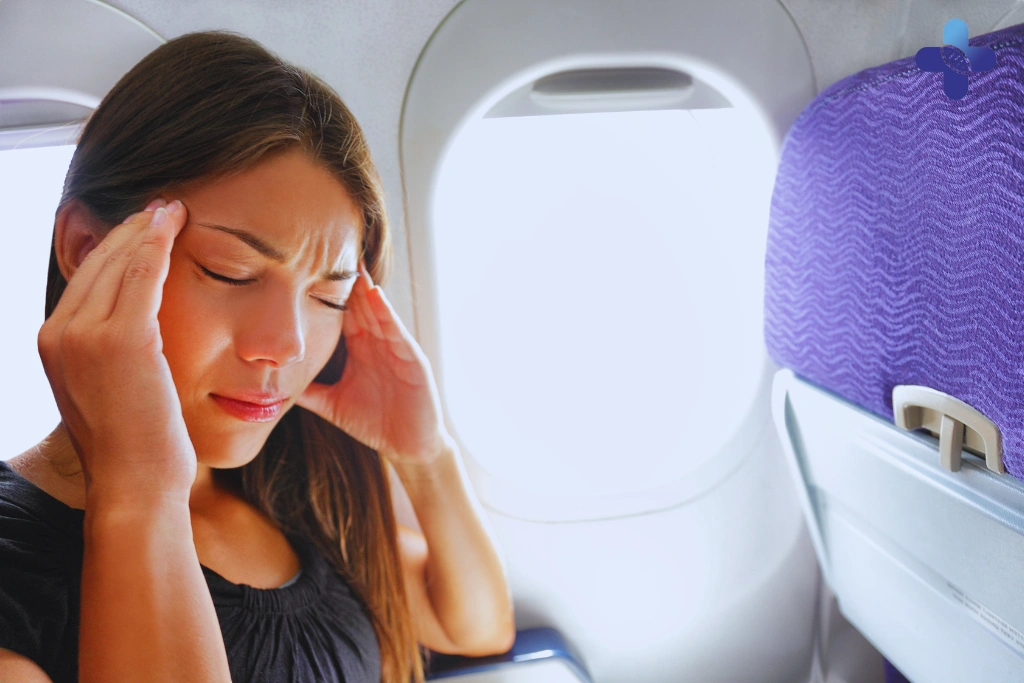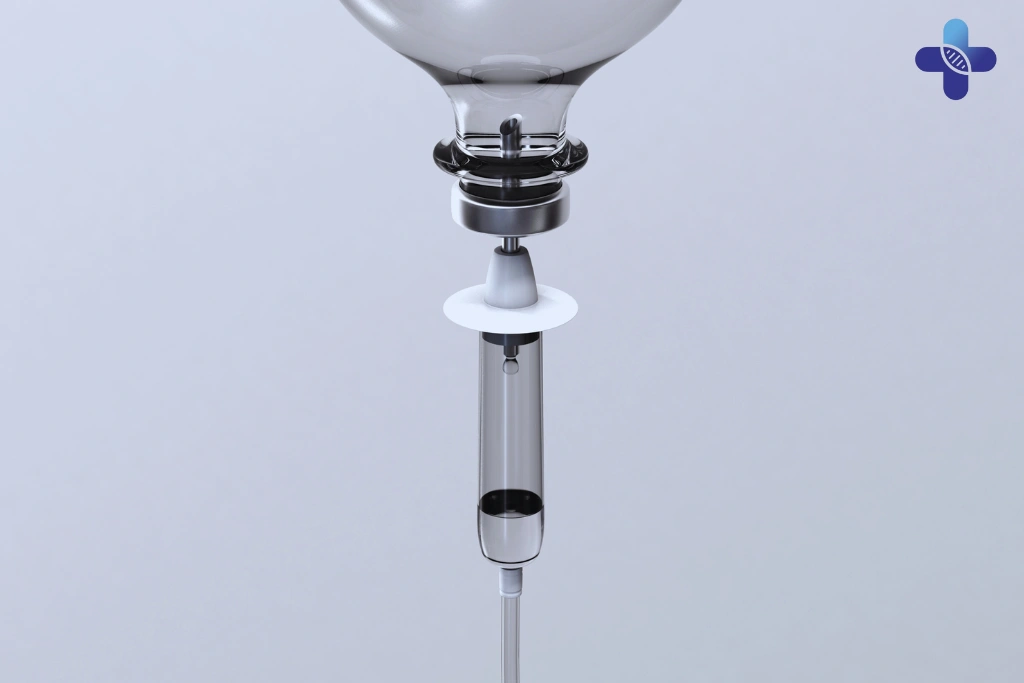Jet lag is more than just post-flight tiredness—it’s a scientifically recognized condition that occurs when your body’s internal clock, or circadian rhythm, is misaligned with the local time of your destination. After a long-haul journey to Bali, many travelers experience symptoms like insomnia, brain fog, and fatigue, leaving them disoriented just when they want to feel their best. In this guide, Life Everyouth, a leading Medical Clinic in Bali, explains the biological reasons behind jet lag and offers practical, science-backed solutions to help your body adjust faster and feel energized in your new time zone.
What is Jet Lag? A Science-Based Guide to Resetting Your Body Clock in Bali

That foggy, out-of-sync, wide-awake-at-3AM feeling after a long-haul flight? That’s jet lag. It’s not just “feeling tired”—it’s a temporary physiological condition where your internal body clock is thrown off by rapid travel across multiple time zones. Your brain thinks it’s midnight, but the Bali sun is already shining. If you’ve just landed and can’t figure out why you’re exhausted yet can’t sleep, this article is for you.
At Life Everyouth Bali, we understand how jet lag disrupts both your vacation and your body’s biology. In this guide, we’ll break down the real science behind what is jet lag, including its symptoms, the role of your circadian rhythm, and why hydration and light exposure matter. As a trusted Medical Clinic in Bali, our mission is to help you reset faster—starting with knowledge, and supported by evidence-based solutions like our Jet Lag IV Drip. Whether you’re a tourist or a frequent flyer, this is your go-to resource to understand and conquer jet lag.
Meet Your Master Clock: The Circadian Rhythm
Your body runs on an internal schedule known as the circadian rhythm—a 24-hour biological clock located in a part of the brain called the suprachiasmatic nucleus (SCN). This “master clock” controls when you feel sleepy, when your hormones are released, and how your organs function. The circadian rhythm is highly sensitive to light, which is why daylight exposure plays a major role in regulating your sleep-wake cycle.
When you cross multiple time zones quickly—like flying from New York to Bali—your circadian rhythm becomes misaligned with the local environment. Even though it’s morning in Bali, your body may still think it’s midnight. This mismatch is what causes the classic symptoms of jet lag: difficulty sleeping at night, drowsiness during the day, mood swings, brain fog, and digestive discomfort. At Life Everyouth, a modern Medical Clinic in Bali, we’ve seen how understanding this rhythm helps travelers prepare smarter and recover faster.
Supporting your body clock as it adapts to a new time zone is key. While the circadian system eventually adjusts, that process can take several days depending on how many time zones you’ve crossed. At Life Everyouth Bali, we educate travelers on how natural cues like sunlight and local meal timing help synchronize your rhythm sooner. As a trusted Bali Medical Clinic, we provide real-time, body-based support for people struggling to recalibrate their sleep and energy.
What Happens to Your Body During Jet Lag?

Jet lag occurs when your internal body clock doesn’t match the local time at your destination. If you travel from London to Bali, for instance, your body might still think it’s midnight—even though the sun is shining in Bali. This mismatch causes a cascade of physiological confusion that goes far beyond sleep disruption.
At Life Everyouth, a trusted Medical Clinic in Bali, we often see these symptoms in newly arrived travelers. Your body is essentially operating on two different time zones at once—and that creates strain. The more time zones you cross, the more intense the impact.
Common jet lag symptoms include:
- Daytime fatigue, especially in the morning or after meals
- Insomnia at night, even when you feel exhausted
- Brain fog, or trouble focusing on simple tasks
- Digestive issues, such as bloating, nausea, or constipation
- Mood changes, including irritability and anxiety
These symptoms are signs that your circadian rhythm is out of sync. For business travelers, athletes, and anyone on a tight itinerary, this can be frustrating and even debilitating. That’s why at Life Everyouth Bali, our team at the Bali Medical Clinic offers science-informed support to help you adapt faster—restoring your focus, energy, and digestive balance within days, not weeks.
The Hidden Accomplice: How Flying Worsens Jet Lag
While your circadian rhythm misalignment is the main cause of jet lag, flying itself brings its own set of challenges that can amplify symptoms. One of the biggest culprits is dehydration. Airplane cabins have extremely low humidity, which leads to fluid loss through your skin and breath. This kind of dehydration contributes to headaches, dry skin, dizziness, and a general sense of fatigue that mirrors—and intensifies—jet lag.
Prolonged sitting, reduced circulation, and stress from disrupted routines also play a role. Your body undergoes physical strain during long-haul travel, which makes it harder to bounce back once you land. That’s why many travelers don’t just feel tired—they feel drained. At Life Everyouth, we often treat patients who arrive in Bali feeling physically depleted. As a top-rated Medical Clinic in Bali, we understand how environmental stress compounds biological disruption.
To recover faster, both the clock and the body need attention. While your circadian rhythm slowly resets, your physical body needs hydration, electrolytes, and nutrients to function properly. That’s where Life Everyouth Bali comes in. As a leading Bali Medical Clinic, we provide immediate support to help your system recover from flight-related stress—bridging the gap between science and comfort.
Natural Strategies to Nudge Your Clock Back in Sync

Resetting your body clock after a long flight doesn’t have to be guesswork. At Life Everyouth, we guide travelers with proven steps to align their circadian rhythm naturally. As a trusted Medical Clinic in Bali, here are the key strategies we recommend:
- Get sunlight exposure early in the morning
Bali’s bright natural light is your best ally. Stepping outside within the first hour of waking helps tell your brain, “It’s daytime now.” This cues your circadian rhythm to shift in sync with the local time. - Avoid blue light at night
Blue light from screens can delay melatonin production and make it harder to sleep. In the evening, dim the lights, avoid phones or laptops, or use blue light filters to protect your body clock. - Time your meals to local hours
Eating in sync with Bali’s mealtimes helps retrain your metabolism and signals your internal systems what time it is. As a reliable Bali Medical Clinic, we see faster recovery in travelers who adjust their food routines early. - Move your body gently
Light exercise like yoga, walking, or swimming boosts circulation, lowers stress, and helps signal your body that it’s daytime. Avoid heavy workouts on the first day, but don’t stay sedentary. - Hydrate more than usual
Long flights leave you dehydrated, which worsens jet lag symptoms. Drink plenty of water, especially in the first 24 hours. At Life Everyouth Bali, our medical team often sees dehydration as the hidden reason people feel drained post-arrival.
These strategies are simple but powerful when used together. As a modern Medical Clinic in Bali, Life Everyouth supports this natural reset with clinical guidance for those who want to feel better fast.
The Recovery Accelerator: Supporting Your Body’s Adjustment
Resetting your circadian rhythm naturally is important—but addressing the physical toll of flying is just as crucial. Long flights leave your body dehydrated, depleted of nutrients, and stressed from disrupted sleep. At Life Everyouth, a trusted Medical Clinic in Bali, we’ve seen how this physiological burden slows down your adjustment to local time. That’s why recovery isn’t just about sleep—it’s about restoring balance inside your body.
While your brain slowly adjusts to the new time zone, you can give your body an immediate physical advantage. A Jet Lag Recovery IV Drip tackles the “hidden accomplice” head-on: it reverses flight dehydration, replenishes essential vitamins like B-complex and C, and restores electrolytes that fuel your energy levels. At Life Everyouth Bali, this fast-acting solution has become a favorite among long-haul travelers, athletes, and professionals. It’s one of the most reliable options offered by any Bali Medical Clinic for those who want to feel physically normal—fast.
Science backs it, and patients feel the difference within hours. If you’ve just landed and can’t afford to lose precious time to jet lag symptoms, we’re here to help. Visit our Jet Lag Recovery IV Drip in bali page to learn how Life Everyouth, your go-to Medical Clinic in Bali, can support your full-body reset. Feel better. Think clearer. Start your Bali journey with energy and ease.
Conclusion What is Jet Lag? A Science-Based Guide to Resetting Your Body Cloc

Understanding what jet lag is—from the disruption of your circadian rhythm to the hidden effects of dehydration—is the first step toward overcoming it. By recognizing the biological and physical reasons behind symptoms like fatigue, insomnia, and brain fog, you gain control over your recovery. At Life Everyouth, we believe that knowledge is power, especially when supported by practical strategies that help your body adjust to Bali’s time zone naturally.
With the right mix of sunlight exposure, smart routines, and science-backed support like our Jet Lag Recovery IV Drip, syncing to “Bali time” doesn’t have to take days. Whether you’re here to relax or perform, Life Everyouth Bali is ready to assist your recovery journey. As a leading Medical Clinic in Bali, we help travelers reset quickly, feel energized, and start experiencing the island at their best.
Frequently Asked Questions (FAQ) What is Jet Lag? A Science-Based Guide to Resetting Your Body Clock
Is jet lag worse when flying east or west?
Jet lag is typically worse when flying east because your body has to fall asleep earlier than it’s used to. This process—called phase advancement—is harder for the brain to adapt to compared to staying up later, which is what happens when flying west. That’s why travelers heading from Europe or the US to Bali often report more intense jet lag symptoms on arrival. At Life Everyouth Bali, a trusted Medical Clinic in Bali, we help you manage these effects and shift your body clock with ease.
How long does jet lag usually last?
A general rule is that recovery takes about one day per time zone crossed, so if you’ve flown across seven zones, expect a week of adjustment. However, this varies depending on age, sleep habits, hydration, and how well you prepare. With support from Life Everyouth, many travelers feel significantly better within 24–48 hours—especially with the help of IV hydration therapy from a reliable Bali Medical Clinic.
Does taking melatonin actually work for jet lag?
Melatonin can be effective when used correctly—it helps shift your circadian rhythm by signaling to your brain that it’s time to sleep. Taking a low dose (0.5–3mg) an hour before your intended bedtime in Bali may ease your transition. However, timing is crucial, and self-dosing can be tricky. At Life Everyouth, we often guide travelers on how to combine natural melatonin production with sun exposure for the best results.
Will I get jet lag on a shorter flight, like from Singapore or Perth?
On short flights within 1–3 hours of time difference, you’re unlikely to experience full jet lag. You may feel tired or disoriented from the travel itself, but your circadian rhythm doesn’t shift enough to cause serious symptoms. Still, dehydration and fatigue from the flight can make you feel off. At Life Everyouth Bali, we provide quick recovery options at our Medical Clinic in Bali even for short-haul travelers who need fast refreshment.
Can certain foods help me adjust to a new time zone?
Yes—meal timing and content can support your internal clock. Eating breakfast rich in protein in the morning boosts alertness, while carbohydrates at night can promote restful sleep. Aligning your meals with Bali’s local schedule helps reset metabolic cues. As part of our wellness education, Life Everyouth, a premier Bali Medical Clinic, advises on travel-friendly nutrition for jet lag prevention.
Besides fatigue and insomnia, what are other common symptoms?
Jet lag can also affect your digestion, mood, and mental clarity. Constipation, nausea, irritability, headaches, and brain fog are all common side effects of being out of sync with your environment. These aren’t just psychological—they’re physical reactions to a confused body clock. At Life Everyouth Bali, we address these concerns holistically as part of our approach as a trusted Medical Clinic in Bali.
Is it possible to completely avoid jet lag?
It’s difficult to avoid jet lag entirely on long-haul flights, especially when crossing multiple time zones. However, with proper preparation, sunlight exposure, and hydration, you can greatly reduce its severity. Our team at Life Everyouth, a leading Medical Clinic in Bali, recommends pre-flight strategies combined with post-arrival recovery like IV Drip Therapy for optimal adaptation.
Does jet lag affect older people more?
Yes, research suggests older adults produce less melatonin and may have a slower-shifting circadian rhythm, making them more vulnerable to jet lag. Recovery may take longer, and sleep disruptions can be more intense. At Life Everyouth Bali, we customize recovery plans at our Medical Clinic in Bali to suit different age groups and health conditions—because no two bodies adjust the same way.
How does dehydration from flying make jet lag feel so much worse?
Dehydration intensifies almost every jet lag symptom—fatigue, headache, dizziness, and poor concentration. Dry cabin air causes you to lose fluids rapidly, even without sweating. Rehydrating with water is important, but targeted IV therapy is often faster and more effective. That’s why many travelers visit Life Everyouth, a go-to Medical Clinic in Bali, right after landing to feel normal again quickly.
Should I force myself to stay awake until bedtime on my first day in Bali?
Yes, as much as possible, try to stay awake until a reasonable local bedtime—around 9–10 PM. This helps your internal clock sync faster and supports melatonin production at the right time. A short 20-minute nap in the afternoon is okay if you’re exhausted, but long naps may delay your adjustment. At Life Everyouth Bali, our Bali Medical Clinic team recommends combining light exposure, hydration, and gentle movement to stay alert and transition smoothly.
